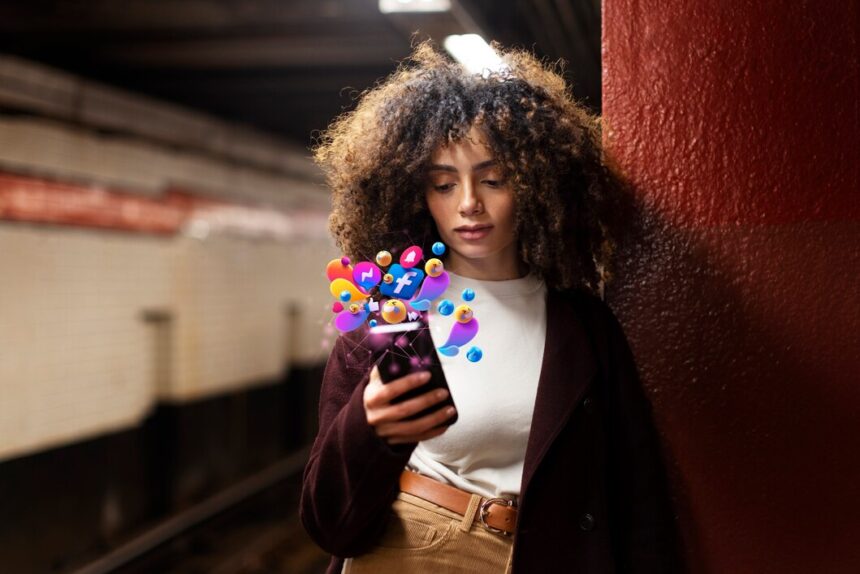In today’s digital age, social media has become an integral part of teenagers’ lives. Platforms like Instagram, TikTok, Snapchat, and Twitter are not just tools for communication; they shape perceptions, influence behaviors, and impact mental health. While social media offers opportunities for connection and creativity, it also poses significant risks, particularly regarding the mental well-being of adolescents. This article delves into the multifaceted relationship between social media and teen mental health, exploring both positive and negative effects.
The Positive Aspects of Social Media
- Connection and Community: Social media allows teens to connect with peers, share experiences, and find communities that resonate with their interests and challenges. This can be especially beneficial for those who feel isolated or marginalized. Online support groups and forums provide safe spaces for discussing issues like mental health, identity, and bullying.
- Access to Information: Social media serves as a valuable resource for teens seeking information about mental health. Awareness campaigns, educational content, and mental health resources are readily available, empowering young people to understand and navigate their emotions and challenges.
- Self-Expression and Creativity: Platforms like Instagram and TikTok encourage creativity and self-expression, enabling teens to showcase their talents, interests, and personalities. This creative outlet can enhance self-esteem and provide a sense of accomplishment.
The Negative Effects of Social Media
- Cyberbullying: One of the most concerning impacts of social media is the prevalence of cyberbullying. Unlike traditional bullying, online harassment can occur 24/7 and often goes unseen by adults. Victims of cyberbullying may experience anxiety, depression, and social withdrawal, leading to severe mental health consequences.
- Comparison and Self-Esteem Issues: Social media is often a highlight reel of curated lives, leading teens to compare themselves unfavorably to others. This constant exposure to idealized images and lifestyles can contribute to feelings of inadequacy, low self-esteem, and body image issues. Research indicates a correlation between high social media use and increased levels of anxiety and depression among teens.
- Addiction and Distraction: The addictive nature of social media can disrupt healthy habits, including sleep and face-to-face interactions. Excessive screen time has been linked to sleep disturbances and decreased academic performance, which can exacerbate stress and anxiety.
- Fear of Missing Out (FOMO): The fear of missing out on social events or trends can lead to compulsive social media checking and increased anxiety. This phenomenon can create a cycle of negative emotions, as teens feel pressured to stay connected and engaged at all times.
Balancing Social Media Use
To mitigate the negative effects of social media on teen mental health, it is crucial to promote healthy usage habits. Here are some strategies for parents, educators, and teens themselves:
- Set Boundaries: Establish clear rules around screen time and social media use. Encourage breaks from devices, especially during meals and before bedtime.
- Encourage Open Communication: Foster an environment where teens feel comfortable discussing their online experiences. Open dialogues about the pressures and realities of social media can help them navigate challenges more effectively.
- Promote Critical Thinking: Teach teens to critically evaluate the content they consume. Encourage them to recognize the difference between reality and the curated images often seen on social media.
- Model Healthy Behavior: Adults can set an example by demonstrating healthy social media habits. Limiting personal screen time and prioritizing face-to-face interactions can positively influence teens.
The impact of social media on teen mental health is complex, encompassing both positive and negative dimensions. While it can serve as a tool for connection and self-expression, it also presents significant challenges that can affect mental well-being. By promoting healthy habits and fostering open communication, parents, educators, and teens can navigate the social media landscape more effectively, harnessing its benefits while mitigating its risks. As we continue to explore this evolving digital landscape, understanding its implications for mental health remains a critical priority.










